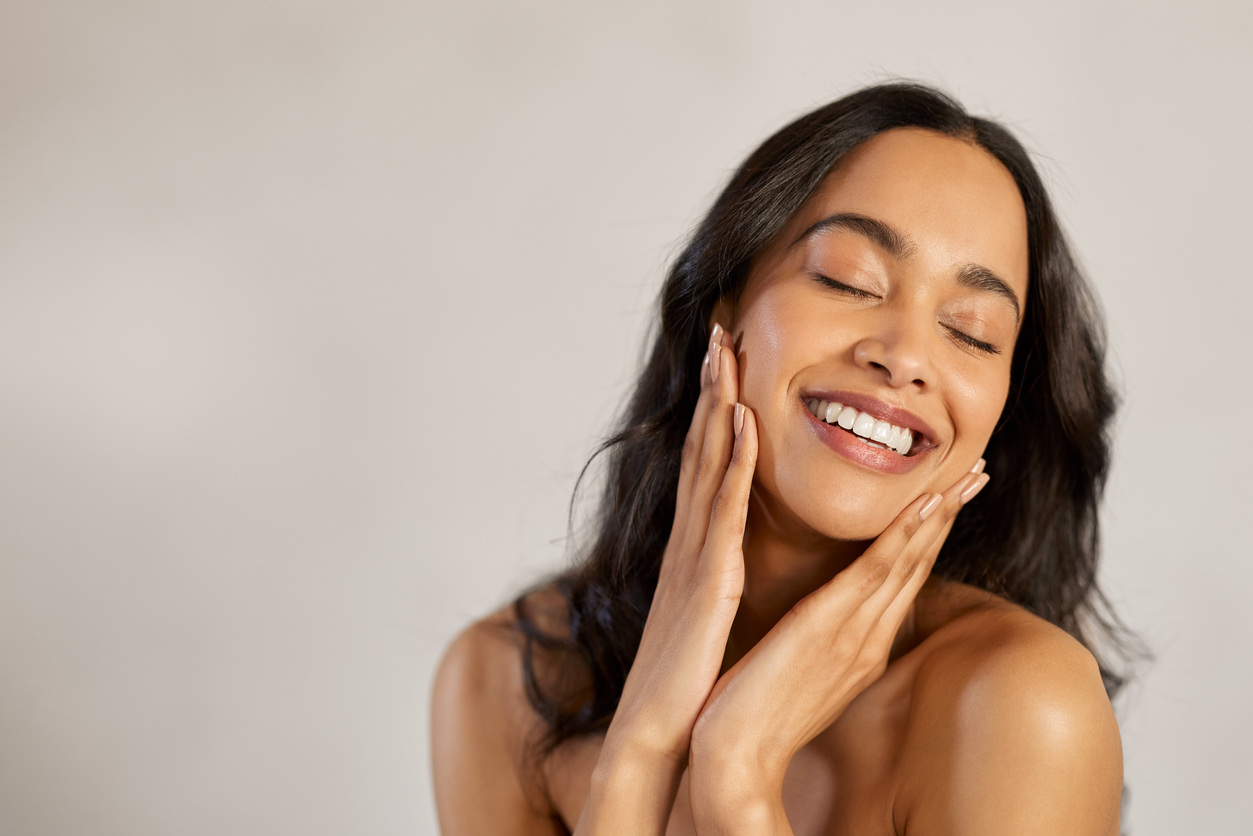What a Cosmetologist Needs to Know About Natural Beauty Products
In the world of beauty, the term natural gets used a lot. More people are trying to achieve the look of natural beauty, which is defined as beauty in its natural form. This craze has increased the demand for natural beauty products. Now more than ever, consumers are focusing on health and sustainability.
Cosmetologists must keep up with the latest trends in the beauty industry so they can continue to provide their clients with the highest quality services, as well as offer the most accurate advice.
Keeping with our mission of being a reliable resource for beauty professionals and enthusiasts wishing to expand their knowledge, HICI Go offers in-person makeup training, online makeup courses, and live makeup webinars. Our courses cover a variety of topics, including makeup and eyebrows and eyelashes.
Here, we discuss what natural beauty products are and what cosmetologists need to know about them.
What Are Natural Beauty Products?
Natural beauty products are the buzz of the beauty industry. Their packaging is eye-catching, their scents are soothing, and their reputation makes consumers believe their products are better for them than others on the market. However, the term natural is very vague. There’s little regulation for labels that use terms such as natural and clean. Currently, there’s no set standard for these products. No regulatory body requires the companies that make natural beauty products to prove that they’re as clean or natural as they say they are.
In many cases, consumers aren’t entirely sure of the ingredients in their natural beauty products. When a product boasts natural properties, that usually means it isn’t made up of ingredients that were made in a lab. Instead, these products use ingredients from other sources, such as plants.
Other Terminology to Know
The beauty industry is incredibly competitive, especially in the makeup and cosmetics sector. Companies and brands are all fighting for the same customers. Many products that boast their natural properties will also use other terminology that beauty professionals need to be aware of, such as:
- Fragrance-free: Not to be confused with the term unscented, fragrance-free refers to products that don’t contain natural or synthetic fragrances.
- Hypoallergenic: This term refers to products that are intended to reduce allergic reactions. However, because there are no federal standards regulating the use of this term, it often holds a loose meaning, according to the Food and Drug Administration.
- Non-toxic: A broad term that’s most commonly used to convey the idea to consumers that a product has been tested and is safe to use.
- Organic: When a product claims to be organic, it means it doesn’t contain ingredients that are grown with synthetic fertilizers, pesticides, or other chemicals.
- Paraben-free: Parabens are hormone-disrupting chemicals used to protect skin care products and cosmetics by preventing the growth of harmful bacteria and mold. They’ve been associated with health concerns such as infertility and cancer.
- PFAS-free: Perfluoroalkyl and polyfluoroalkyl substances (PFAS) are chemicals that resist grease, oil, water, and heat. These hormone-disrupting chemicals can impact sleep, blood pressure, metabolism, and more.
- Phthalate-free: Commonly used as dissolving agents in skin care products and cosmetics, these hormone-disrupting chemicals have been shown to decrease sperm quality based on some studies.
- Sulfate-free: Chemicals that are used to make products lather or foam.
Are Natural Beauty Products Actually Better?
Clients and consumers often turn to licensed cosmetologists and other beauty professionals when they are unsure about certain products and services. When discussing natural beauty products with your clients, it’s important to inform them that the term “natural” is not a set standard that companies must meet. Therefore, cosmetic products that use natural ingredients aren’t necessarily better or even safer.
The World of Makeup Is Always Evolving
The beauty industry continues to evolve, constantly introducing new trends and natural beauty products. For this reason, beauty professionals and cosmetologists must continue expanding their knowledge, regardless of their experience level.
HICI Go is an educational platform that connects beauty enthusiasts who are eager to learn with a diverse catalog of beauty-centered courses. Cosmetologists can use these teachings to provide their clients with industry-leading services and accurate recommendations.
Our in-person makeup courses are available at partner institutions in Florida and other states. Courses include a variety of topics, such as:
- Best practices for applying primer, foundation, concealer, contour, blush, bronzer, highlighter, eye and lip makeup, and more
- Brush types and when to use them
- Building a makeup business and clientele
- Marketing tactics for self-promotion
- Products used for makeup application and when to use them
- Providing memorable customer service
- Relationship management with customers
Learn New Makeup Skills With HICI Go
HICI Go offers a wide range of beauty and wellness instruction. We offer live webinars and on-demand online video courses for students across the United States. We also partner with Cortiva Institute and Hollywood Institute for in-person courses in Florida, Texas, Connecticut, Maryland, and Pennsylvania.
We strive to update our course listings frequently and encourage beauty professionals to check back periodically and see the new listings. Contact us today to learn more about our courses or make an account to register for online courses.



